Two new additions to FLASS management share their vision about their new roles
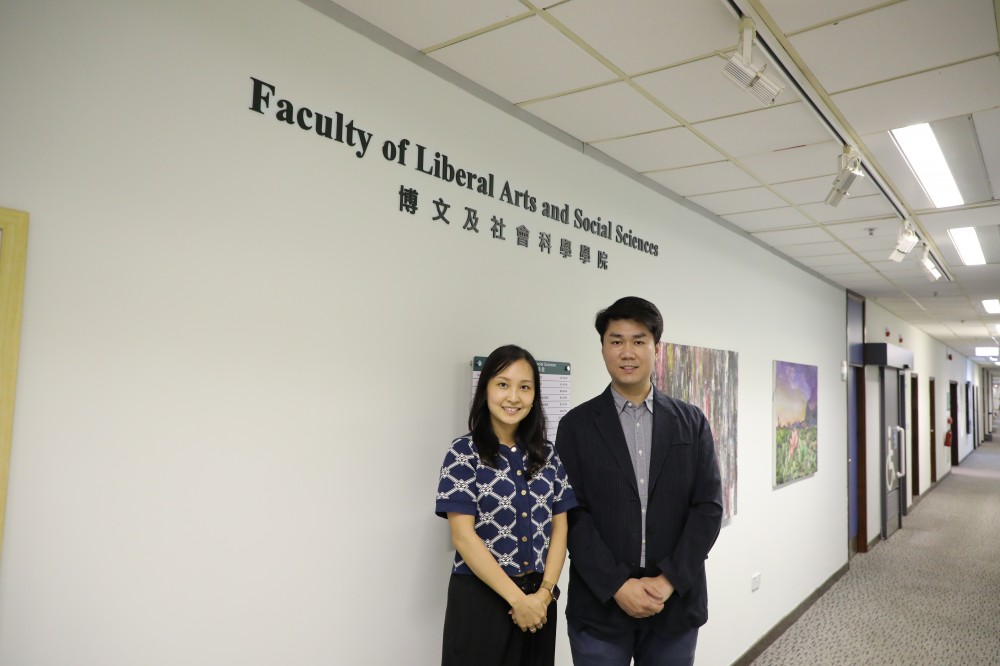
Dr Li Wai-chin, Associate Professor from the Department of Science and Environmental Studies (SES) took up his new role as Associate Dean (Quality Assurance and Enhancement) starting January this year. Dr Prudence Lau Leung-kwok, Assistant Professor in the Department of Cultural and Creative Arts (CCA), began serving as Assistant Dean (Undergraduate Studies and Student Learning) in August. They are the two new members of the faculty’s management team.
In Dr Li’s new role, he is responsible for overseeing the implementation of policies as well as strategic and operational plans pertaining to quality assurance and the enhancement of FLASS programmes. In Dr Lau’s new capacity, she is tasked with assisting the Associate Dean (Undergraduate Studies and Student Learning) to oversee the implementation of undergraduate programmes, and to empower students’ learning abilities and enhance student learning outcomes.
The two new members of FLASS management shared with FLASS FORWARD their experiences in teaching, what it is like managing programmes, and how they handle students’ learning and adaptation. We sought to get to know them better through our interviews, unveiling their vision and thoughts on their new roles, and their expectations on what students should acquire after their years of university education at FLASS and EdUHK.
When Dr Li joined FLASS in 2012, it was still called the Faculty of Arts and Sciences (FAS). The faculty was renamed the Faculty of Liberal Arts and Social Sciences (FLASS) on 1 September 2012. Dr Li enjoys hiking and often finds great inspiration from observing nature. He also likes taking photos of natural scenery.
Dr Lau joined FLASS in 2013. As an architectural historian, Dr Lau loves travelling around the world and visiting historical sites and taking students on field trips. She is also a lover of music and has been playing various musical instruments since her childhood.
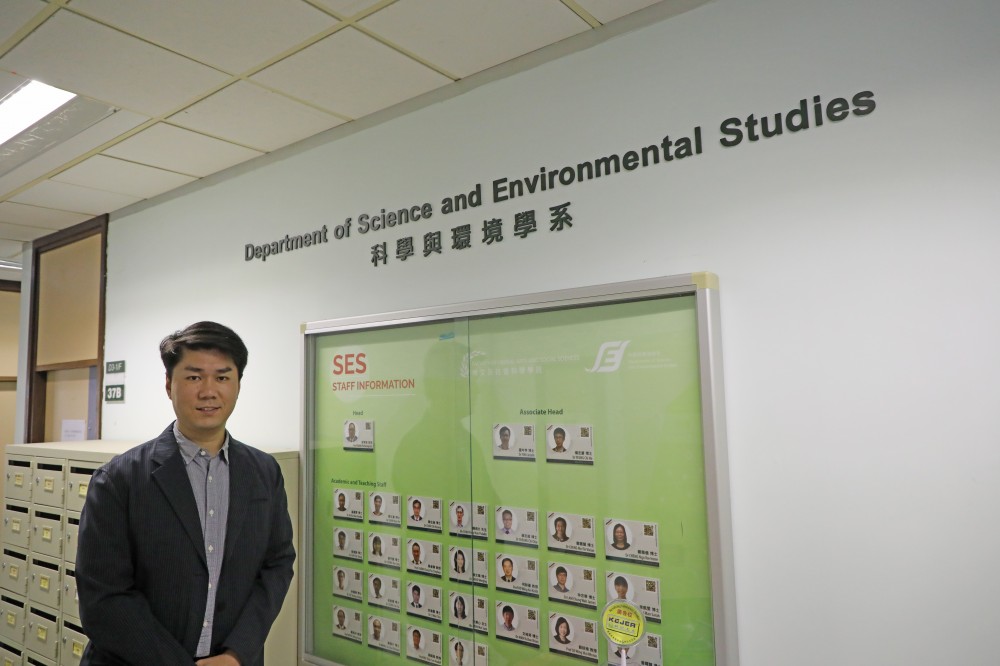
Dr Li: FLASS is really very diverse in its academic composition. Take SES as an example; we have physicists, chemists, biologists, astronomers, environmental toxicologist experts, and more. Against the backdrop of this diversity, we are somehow united in an overarching theme to direct our research works towards environmental health and sustainability. At SES, scholars in different academic disciplines act in unison to invent impact-bearing technology that protects the environment, develop a curriculum that is focused on sustainability, and raise public awareness about the importance of environmental conservation.
Education is EdUHK’s core academic strength. In line with this focus, SES has set its other emphasis on education. We provide many training programmes for in-service teachers. These programmes keep them abreast of the latest developments in the education field. For instance, when the concept of STEM education (Science, Technology, Engineering and Mathematics) or STEAM, with the “A” representing Arts, was introduced to Hong Kong a decade or so ago, FLASS organised many seminars and short-term brush-up courses for in-service teachers to equip them with new ideas.
My new role at the faculty management is to ensure that FLASS programmes are of quality. We will make essential enhancements from time to time to suit the various needs of the stakeholders. When talking about the quality of students, I think testimonials and awards are also proof of the quality of our graduates. In my ten years at FLASS, I have noticed that many primary and secondary school administrators like employing our graduates. Many FLASS alumni have won the Chief Executive’s Award for Teaching Excellence. These reflect the high quality of FLASS graduates when it comes to being a teaching professional.
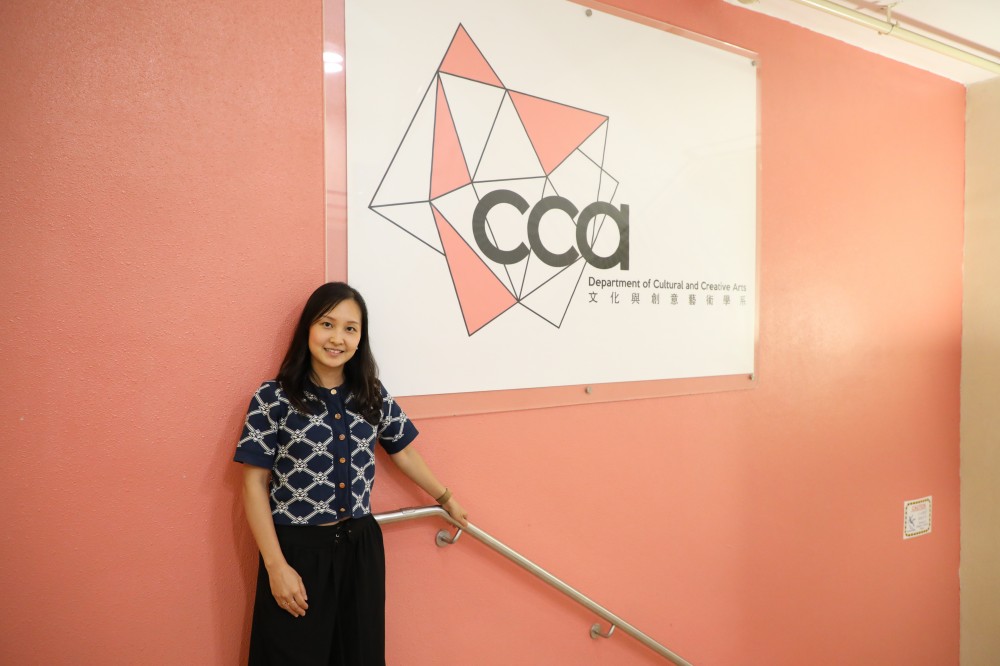
Dr Lau: I agree that diversity, both at faculty and departmental levels, is at the core of FLASS. At CCA, we have musicians, musicologists, visual artists, art historians and experts on various forms of international and local arts including digital media, Cantonese opera, community art, and more. Despite the very wide spectrum of academic backgrounds of this pool of experts, they complement each other well. At FLASS, we have many cross-departmental cooperation opportunities too. For instance, I once had the opportunity to teach several courses for programmes hosted by SES.
The evolving education curriculum has brought about new ideas in interdisciplinary teaching and learning. At FLASS, we are always responsive to the emerging need in the market for talents in the fields of art, culture, sustainability, science, technology, and more. For instance, our faculty offers a Creativity and STEM/STEAM minor that is co-hosted by CCA together with SES. This programme integrates the strengths of both departments and aims to enhance students’ understanding of and abilities in creativity, through experiential and activity-based learning. Such integration reflects the adaptability and inter-disciplinary cooperation of FLASS.
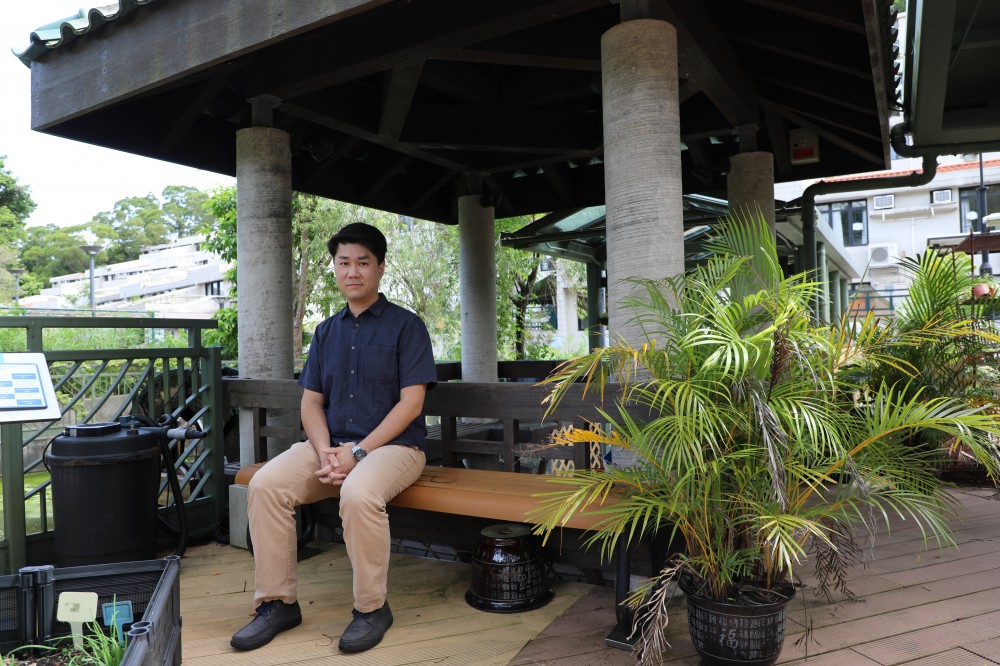
Dr Li: My research interests cover heavy metal pollution, toxicology and microbiology in the soil and water environments. I use my knowledge in biology, environmental chemistry and food safety to measure, evaluate and then improve environmental problems for polluted areas in mainland China and Bangladesh.
As a trained scientist, I rely on a rigorous system to conduct experiments, collect data and make predictions. The same way of thinking can be applied to quality assurance work, which is all about devising a systematic process of assessing whether our programmes meet certain requirements. People often talk about quality in a qualitative manner. My practice as a scientist prompts me to use quantitative indicators to measure quality. I believe the systematic approach to solve problems acquired through my training as a scientist can be used in my new assignment on quality assurance and enhancement.
I believe the systematic approach to solve problems acquired through my training as a scientist can be used in my new assignment on quality assurance and enhancement.
I have been a programme leader for different programmes for four years, giving me hands-on experience on how programmes are executed and knowledge on what communication platforms are used between students and staff, such as the staff-student consultative committee meetings. One of the key tasks in my new capacity is to act as a bridge between faculty and the University central. I am confident that my past experience in facilitating communications between different parties will help my new duty in quality assurance and enhancement.
In my new role, I receive a lot of information from the University central or outside bodies about how to measure quality. It follows that in my new capacity, I need to cascade this information down to staff members at FLASS who are coordinating different academic programmes. In my new position, I also have many chances to learn about new trends in how programmes are run at other faculties, and at other tertiary institutions. It is crucial that I effectively share all these good practices among FLASS colleagues for programme enhancements. I will also work proactively with different programme leaders to devise action plans to review and ensure quality of the programmes from time to time.
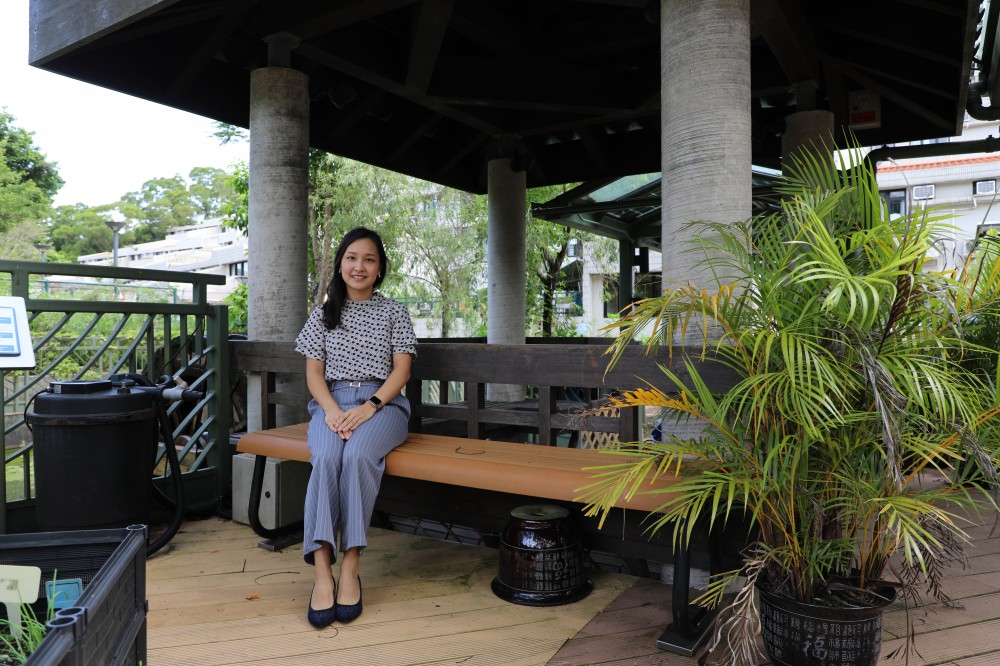
Dr Lau: My doctoral research was in the field of architecture with a focus on the relationship between architecture, history, culture and people. Indeed, people formed the very core of my research. My academic background enlightened me on the importance of respecting people’s voices, stories and uniqueness. People always come first in my present work in learning and teaching at FLASS.
People always come first in my present work in learning and teaching at FLASS.
I have been the chair of the Departmental Learning and Teaching Committee of CCA since last February. I previously also took up the role of programme leader for a number of programmes in visual arts, music and physical education for several years. In these posts, I had to deal with student issues. In some cases, I was involved in the decision-making process about discontinuing students' studies or delaying their graduation time. Before the decision was made, I always spent time listening to students, to learn about any reasons behind their underperformance, or any emotional issues baffling them. It is important that teachers give students adequate encouragement when things are falling apart, and work with them together to find a workable solution that will help them overcome the difficulties they are facing.
I believe a teacher plays a vital role in shaping the lives of young people. As such, the outcome or the final decision is not all that matters. What matters more is how we deal with the situation, and how we come to that decision.
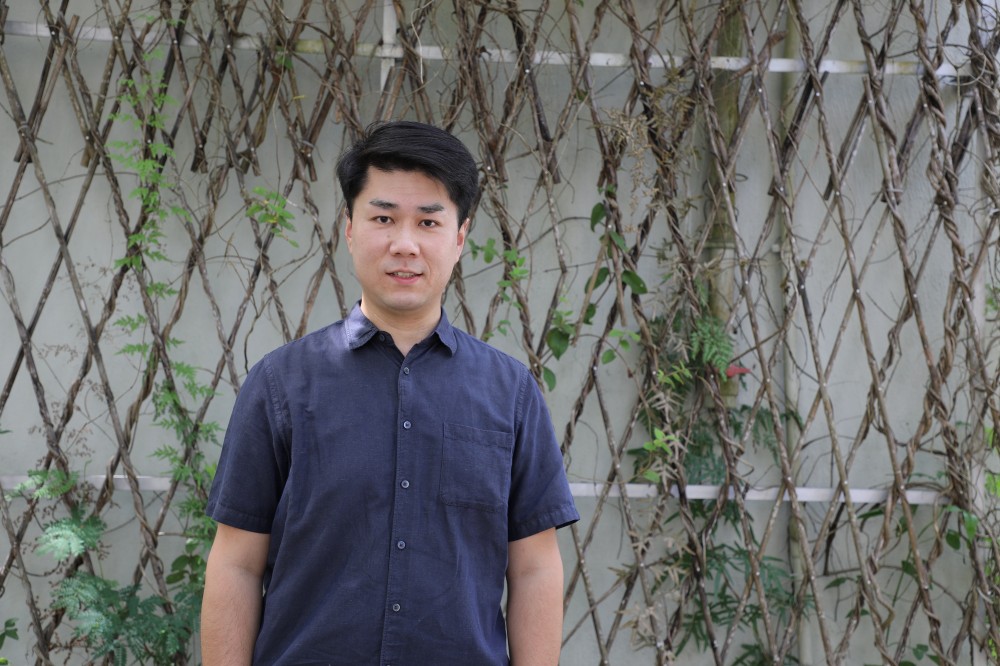
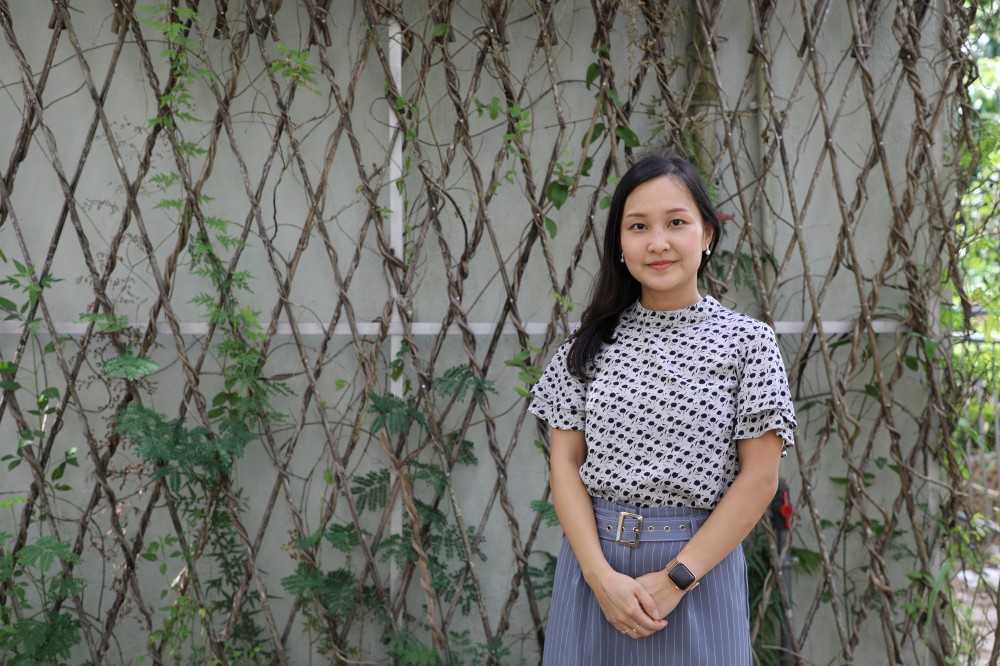
Dr Li: From my interactions with primary and secondary school administrators, I have found that they have high expectations when it comes to a teacher’s attitude. When deciding to hire a teacher, they look more closely at a person’s passion for education than their academic strength. I think this is because character plays an even bigger role than subject knowledge when nurturing students.
We can’t underestimate the impact of a teacher on students. The Canadian motivational writer Robin Sharma once said “Words can inspire and words can destroy. Choose yours well.” I think Sharma’s saying is so true, especially in the teaching profession. Students who want to become a teacher after graduating from EdUHK should learn how to choose the right words and use the right attitude when communicating with their students.
Words can inspire and words can destroy. Choose yours well.
But how to make students aware of the importance of their attitude in teaching? I think empathy is key to having sensitivity when interacting with students. Being emphatic means that you think in the shoes of others. In the teaching context, it means you assume you have been in the same situation as your students before making a judgement on them.
Our students who take education degree programmes need to teach at local schools as part of their graduation requirements. In the beginning, they may tend to penalise students who violate class rules. But after a while, when they talk with their students and discover more about their situations, they gradually develop a sensitivity for handling disciplinary issues. Punitive acts may no longer be the first thing they think of when dealing with students with behavioural problems. Things become even more challenging when it comes to handling students with attention deficit hyperactivity disorder (ADHD) or students with autism spectrum disorder (ASD).
It was once believed that classroom management comes before teaching. Nowadays, however, teachers are catering more to the diverse needs of students and are allowing more flexibility in classroom management. When I teach students, I often encourage them to focus on the positive side of a person. I believe one of the responsibilities of being a teacher is to inspire and motivate our students to learn. I believe people flourish when they are being encouraged.
When describing the attributes that a good teacher should possess, the Chinese saying goes: “Teach students the right morality, pass on knowledge, and resolve their doubts in life.” (傳道、授業、解惑.) I think we teachers at FLASS should have these qualities, and we should also nurture our students with these qualities.
Dr Lau: I believe in the power of learning in the workplace. I think that students should not only study hard at university to acquire subject knowledge, but should also actively seek opportunities for interning, apprenticing or pre-job training outside the campus to equip themselves with real-life work experience. I remember when I studied for my doctoral degree, I was able to learn at the same time in an architectural conservation office and learnt a lot from working in a real-life scenario with practising professionals. It was one of the most enriching experiences I had.
The learning journey of a student should not stop within the confines of a campus.
Places like classrooms, laboratories and lecture halls are traditionally seen as the arenas where students acquire knowledge. But the learning journey of a student should not stop within the confines of a campus. Take CCA as an example. Many students in the CCA programme take up internship locally or overseas at public or private companies, museums, musical groups or orchestras during summer breaks. At these places, students have the opportunity to learn in an immersion environment. And to students who are less privileged, these internship opportunities represent a rare chance to expose themselves to a different culture. Some CCA students also visited Croatia, Amsterdam, Barcelona, Korea and other places for short-term research studies. Such opportunities provided truly eye-opening international exposure for these students.
When my students are working in an internship, I always encourage them to be more proactive and offer help to their supervisors and teammates instead of waiting for their supervisors to assign tasks. I have found that workplace experiences change our students in many ways; they become more mature after returning from field work, more pro-active in learning, and more serious in their studies. At the very least, these students become more punctual and responsive to other people’s requests and even pay more heed to how they dress.
Dr Li: Our responsiveness to market trends is one of our strengths. We are going to launch five new programmes in the 2022/23 academic year in response to the market demand for talents in the areas of sports development, life education, social entrepreneurship, community development, environmental management and artificial intelligence. As we enter the 21st century, we cannot deliver education as before. In the new era, knowledge will grow even more personalised, with wider applications of information and educational technology in the teaching process, to name but a few changes. FLASS has been close to trends in both the manpower market and education. We will continue to design and adapt our curriculum to suit the latest trends in society.
Dr Lau: FLASS is striving to provide our students with work-integrated learning experiences and opportunities to explore different cultures. FLASS follows the market closely and understands what sort of manpower the market needs. As I said previously, the market needs people who are not only booksmart but also have an understanding of workplace culture. We will continue to provide opportunities to our students to gain field experience, through which they can learn important soft skills such as interpersonal and organisational skills, and behaviours such as integrity, responsibility and humility.
Dr Li: I always guide my works with two catchphrases: “Trust but not without expectations,” and “Eager to help, but not to intervene.” (信任而不放任、熱心而不干預) I let these sayings guide me whether I am managing a programme or tutoring a student.
I try not to intervene in people’s work because I trust they can legitimately complete a task in their own way. Performing good quality assurance work relies on a sound management system, which is a system designed based on parameters set out by University Grants Committee and the University. With a sound system, I know where I should draw a line between when I need to keep my hands off, and when I need to offer my assistance and work together with colleagues to find a solution that ensures the results meet the desired expectations and requirements.
In a nutshell, I view myself as a goalkeeper. I won’t instruct players on the field how to play the game. I trust my colleagues are capable of delivering good-quality education. But when measurements hint at gaps between expected outcomes and actual results, I will be motivated to offer my advice.
Dr Lau: My personal motto is: “Be creative, and be humble.” CCA is a place where artists of all kinds come together. Creativity is a paramount quality that keeps our musicians, visual artists and photographers vibrant. At CCA, whether you are an academic or a student, we believe you need to try using different ways to present the same ideas.
I like architecture because it is also a field full of creativity. In the western tradition, architecture is widely viewed as a form of fine art. Creating a beautiful building and making the environment more pleasant through architectural variations involves a lot of innovative ideas.
To some, being humble sounds like the opposite of being creative. But I think they are complementary to each other. We need creativity to break the norm and try new things. We also need humility to remind us that there are always things that we don’t know. No matter how clever or knowledgeable you are, if you are humble, there is always more to learn. Take Albert Einstein as an example, who once said, “The more I learn, the more I realise how much I don’t know.” Even a genius like Einstein was humbled by the vast ocean of untapped knowledge. The world is so big that human beings need to keep a humble mind to keep exploring.



